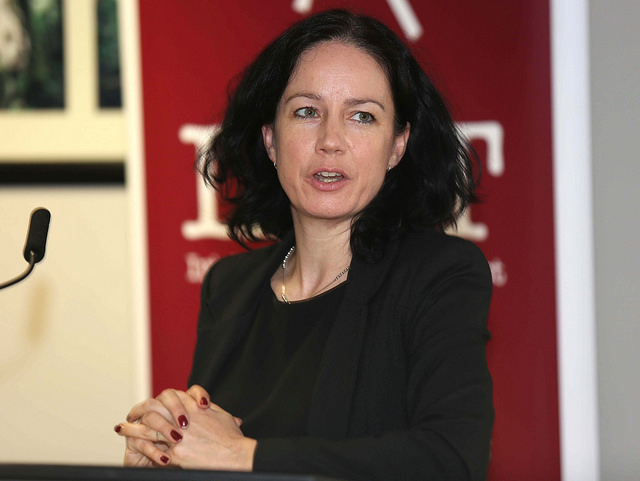Visiting committee reports spark calls for urgent action at Ireland’s women’s prisons

Fíona Ní Chinnéide
New reports revealing systemic and persistent issues at Ireland’s two women’s prisons - including overcrowding, staffing shortages and increasing fears of homelessness on release - have prompted calls for Government action.
The Irish Penal Reform Trust (IPRT) has called on ministers to accelerate efforts to provide community-based alternative for women to offend, along with step-down accommodation for women on release from prison.
The call was made in response to the Prison Visiting Committee annual reports for 2017 published by the Department of Justice last week, which set out “serious challenges” due to “over-stretched resources”.
The report from the Dóchas Centre Visiting Committee noted that there had been an “unsettling” decision to remove women and babies from a dedicated mother and baby unit to ordinary rooms “for disciplinary reasons”.
Fíona Ní Chinnéide, acting executive director of the IPRT, said the practice was of “serious concern” and contrary to the European Prison Rules drawn up by the Council of Europe.
Meanwhile, the Limerick Prison Visiting Committee observed that the women-only facility was at 196 per cent capacity, which Ms Ní Chinnéide said had led to “reduced quality of living conditions, as well as prisoners’ privacy”.
Visiting Committees for both of Ireland’s women’s prisons have repeatedly called for access to step-down or supported accommodation for women.
Ms Ní Chinnéide said: “Despite repeated policy commitments by the Department of Justice and Equality, there have been delays in the establishment of a step-down facility or open provision for women, which would support their gradual release back into society. IPRT again calls for delivery on this commitment, which should be met with an accompanying reduction in the number of closed female prison spaces.”
The report for the Dóchas Centre also details the concerns of the Visiting Committee about the current lack of a standardised complaints procedure and the “inordinate” amount of time taken to investigate other “fairly straight-forward complaints”.
The IPRT has said it is further concerned at alleged inappropriate relationships between staff and prisoners at the Dóchas Centre.
On the issues of prisoner complaints and staff conduct, Ms Ní Chinnéide said: “In order to ensure that both prisoners and staff have confidence in the complaints system, IPRT has long advocated for the establishment of a prisoner ombudsman or access to the existing Office of the Ombudsman. In light of the significant issues raised in these reports, IPRT restates that the need for prisoner access to the Ombudsman to facilitate the appealing of complaints to an independent body is urgent.
“While the majority of prison officers and other staff in the prison system undertake their duties in a professional manner, if any member of staff does not fulfil their role to the highest professional standards, there is a duty on the Irish Prison Service to investigate and to take action as appropriate.”









